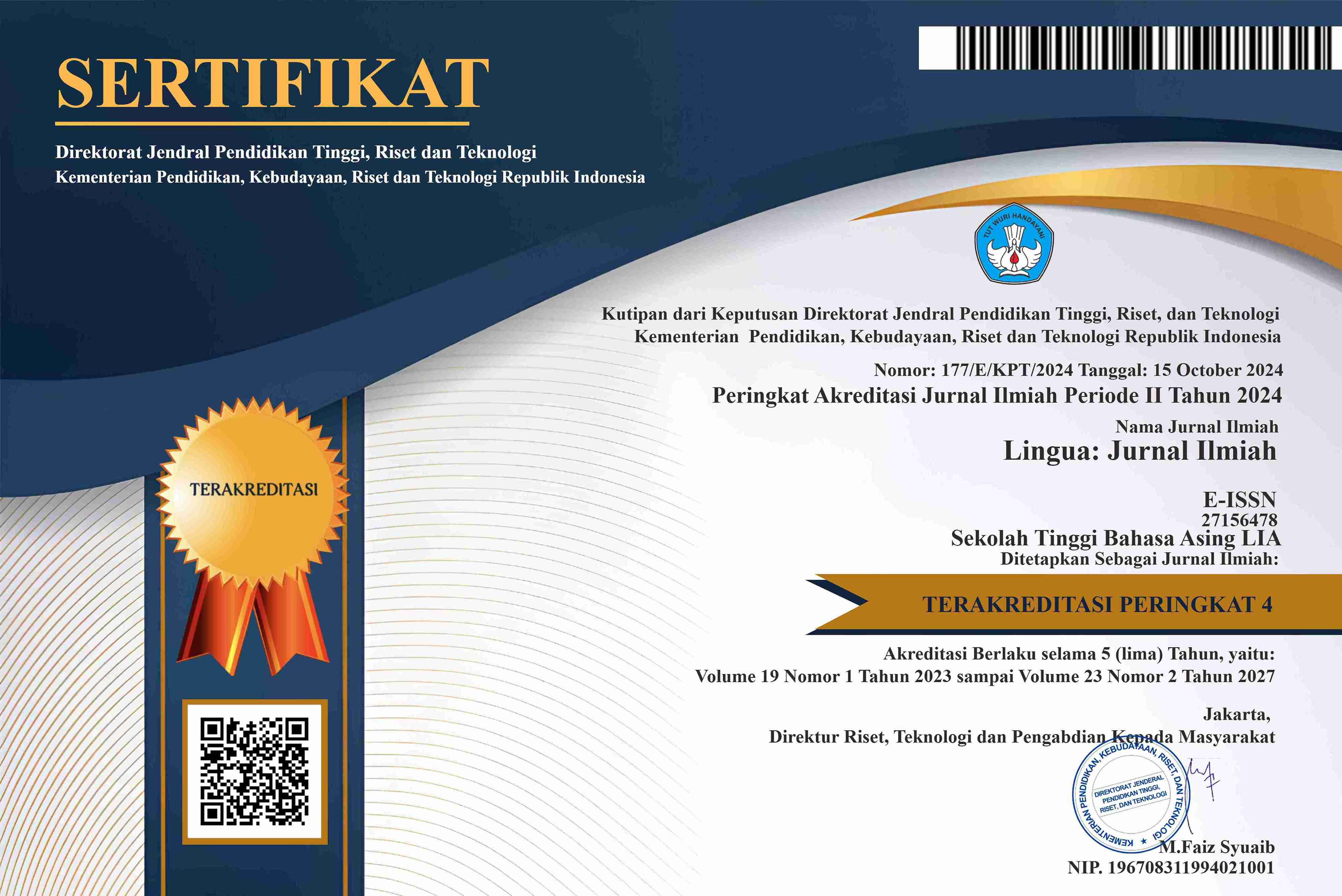THE MYTH ANALYSIS IN DEMAIN DES L’AUBE POETRY BY VICTOR HUGO
Keywords:
Poem, Hugo, Father, Semiotic and MythAbstract
A poem can construct and represent various events that relate in people's lives, such as
people's habits, family life, married life, history and so on. Poetry is an expression that is
dense, concise, and full of meaning. Poetry has a characteristic that is using short
sentences and consists of only three stanzas. In poetry, there are many expressions of
expression that are expressed indirectly so that it requires deeper meaning. Each poem
certainly has different characteristics in packaging and representing issues and themes
that will be raised into a story according to the ideology and goals to be achieved by the
author. The purpose of this study is to reveal the semiotics of signs in the Victor Hugo’s
poem, titled Demain dès l’aube. The semiotics is used to find out the signifier, signified,
and myth in the poem of Victor Hugo, through the relationship between father and
daughter. This research uses a qualitative method, combined with the Roland Barthes’
semiotics theory. As the result, this poem talked about a person who lost his daughter. This
poem is a true story of Victor Hugo, himself, when his daughter died. The signifier and the
signified found in this research represent the father's love for the child in the poem, signed
by the broken feelings of the father, who was unable to save his lovely daughter
Downloads
Published
How to Cite
Issue
Section
License
Copyright (c) 2024 Yulia Sofiani Zaimar, Leni Tiwiyanti, Yosi Maeleona Passandaran

This work is licensed under a Creative Commons Attribution-NonCommercial-NoDerivatives 4.0 International License.












